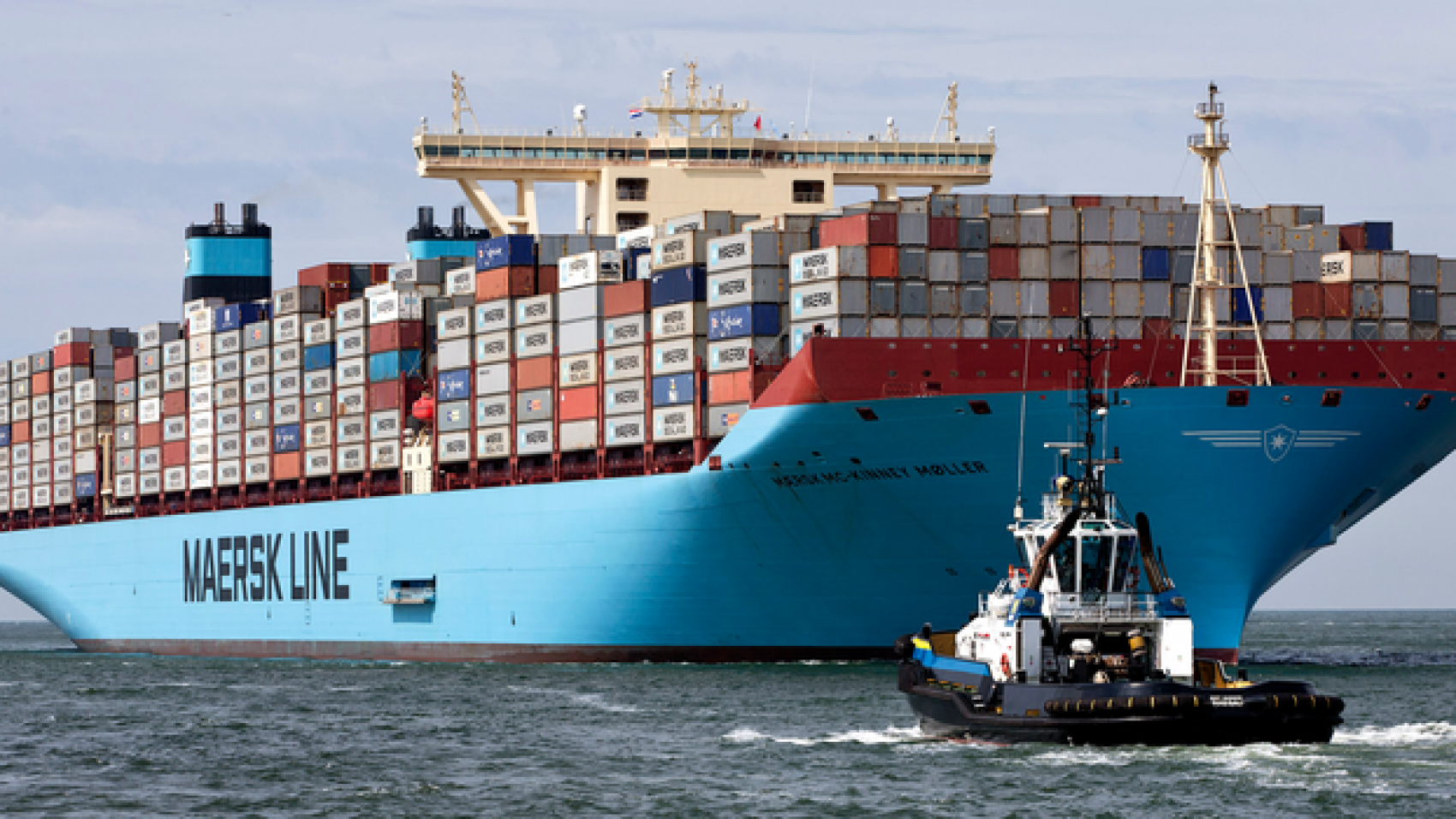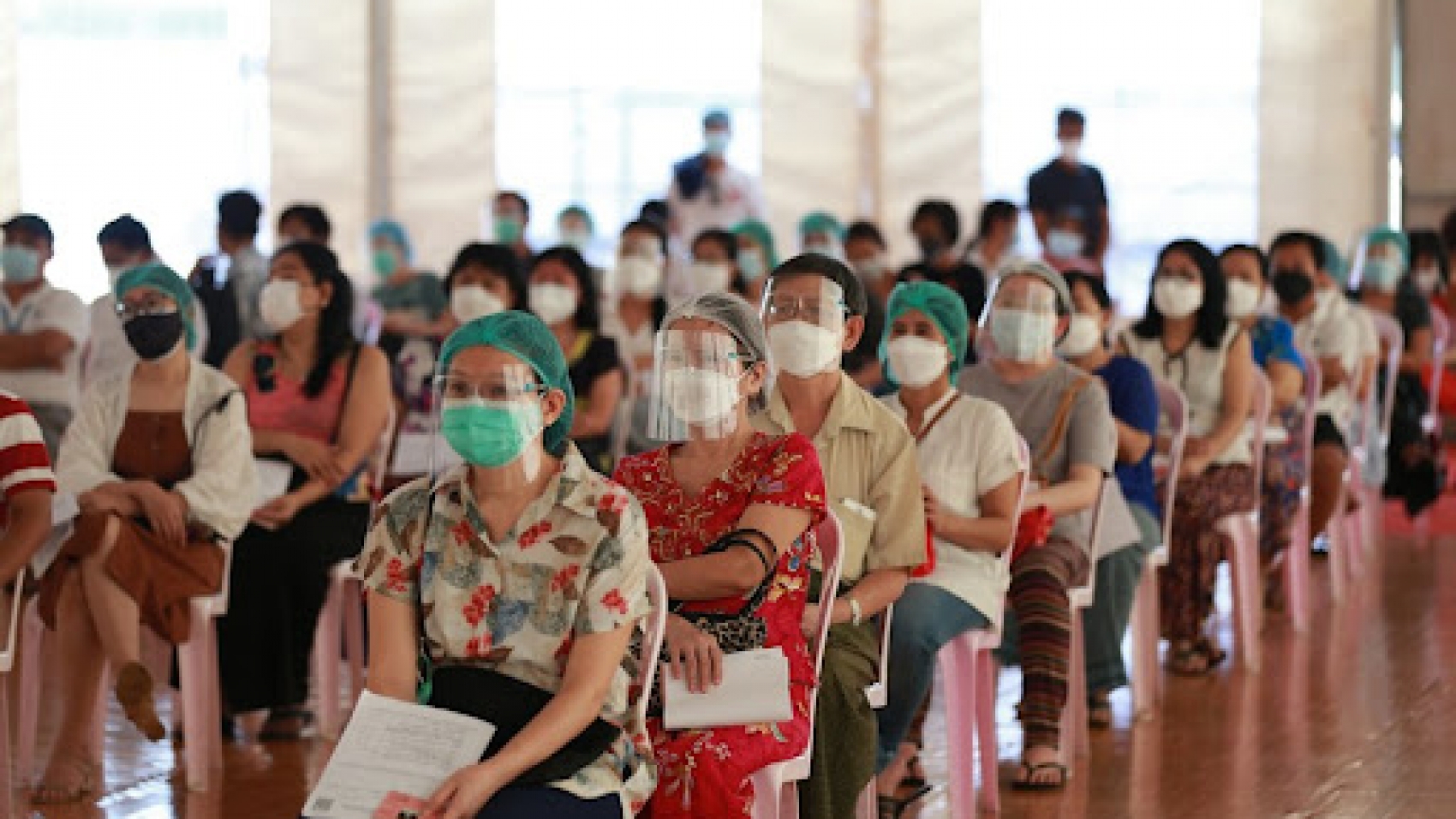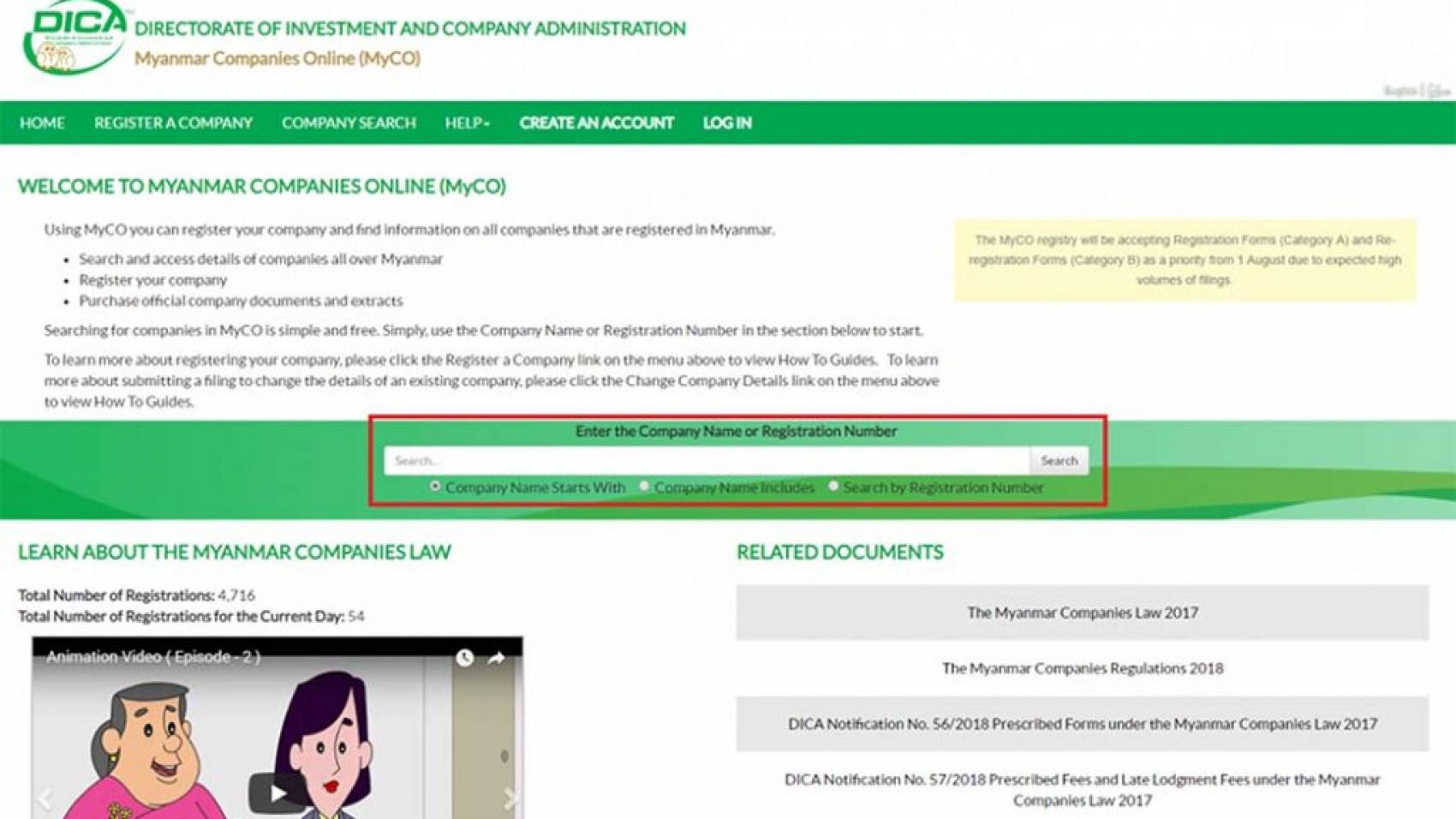The number of companies registered on the online registry system, MyCO, reached over 4,965 in the past nine months this year, the statistics released by the Directorate of Investment and Company Administration (DICA) indicated. The registration and re-registration of companies on the MyCO website commenced on 1 August 2018, in keeping with the Myanmar Companies Law 2017. During the January-September period, the number of registered companies on MyCO was 1,373 in January, 188 in February,163 in March, 254 in April, 686 in May, 775 in June, 433 in July, 360 in August and 733 in September, the DICA’s statistics showed. At present, 100 per cent of the applicants are using the online registration platform, the DICA stated.
Last year, the figures of registered companies stood at 1,415 in January, 1,298 in February and 1,015 in March, only 348 companies in April, 798 in May, 1,314 in June, 1,650 in July, 1,551 in August, 1,378 in September, 1,693 in October, 1,099 in November and 1,521 in December, as per statistics of the DICA. In 2019, the figure stood at 1,733 in January 2019, 1,419 in February, 1,108 in March, and over 1,045 in April, 1,411 in May, 1,307 in June, 1,428 in July, 1,302 in August and 1,181 in September. The figures reached a fresh new peak of 2,059 in October 2019. Then, 1,615 new companies in November and 1,772 in December were recorded, data of the DICA showed. When the online registry was launched in August 2018, a total of 1,816 new companies have taken registration on MyCO.
The figure stood at 2,218 in September 2018, 1,671 in October, 1,431 in November and 1,364 in December 2018. In addition, all registered companies need to file annual returns (AR) on the MyCO registry system within two months of incorporation, and at least once every year (not later than one month after the anniversary of the incorporation), according to Section 97 of Myanmar Companies Law 2017. Section 266 (A) of the Myanmar Companies Law 2017 mentions that public companies must submit annual returns and financial statements (G-5) simultaneously. All overseas corporations must submit ARs in the prescribed format on MyCO within 28 days of the financial year ending, as per Section 53 (A-1) of the Myanmar Companies Law 2017.
As per DICA’s report, about 17,000 companies were suspended so far for failure to submit AR forms within the due date. Newly established companies are required to submit ARs within two months of incorporation or face a fine of K100,000 for filing late returns. The DICA notified that any company which fails to submit its AR within 13 months will be notified of its suspension (I-9A). If it fails to submit the AR within 28 days of receiving the notice, the system will show the company’s status as suspended. Companies can restore their status only after shelling out a fine of K50,000 for AR fee, K100,000 for restoration of the company on the register, and K100,000 for late filing of documents. If a company fails to restore its status within six months of suspension, the registrar will strike its name off the register, according to the DICA notice.
Source: The Global New Light of Myanmar



